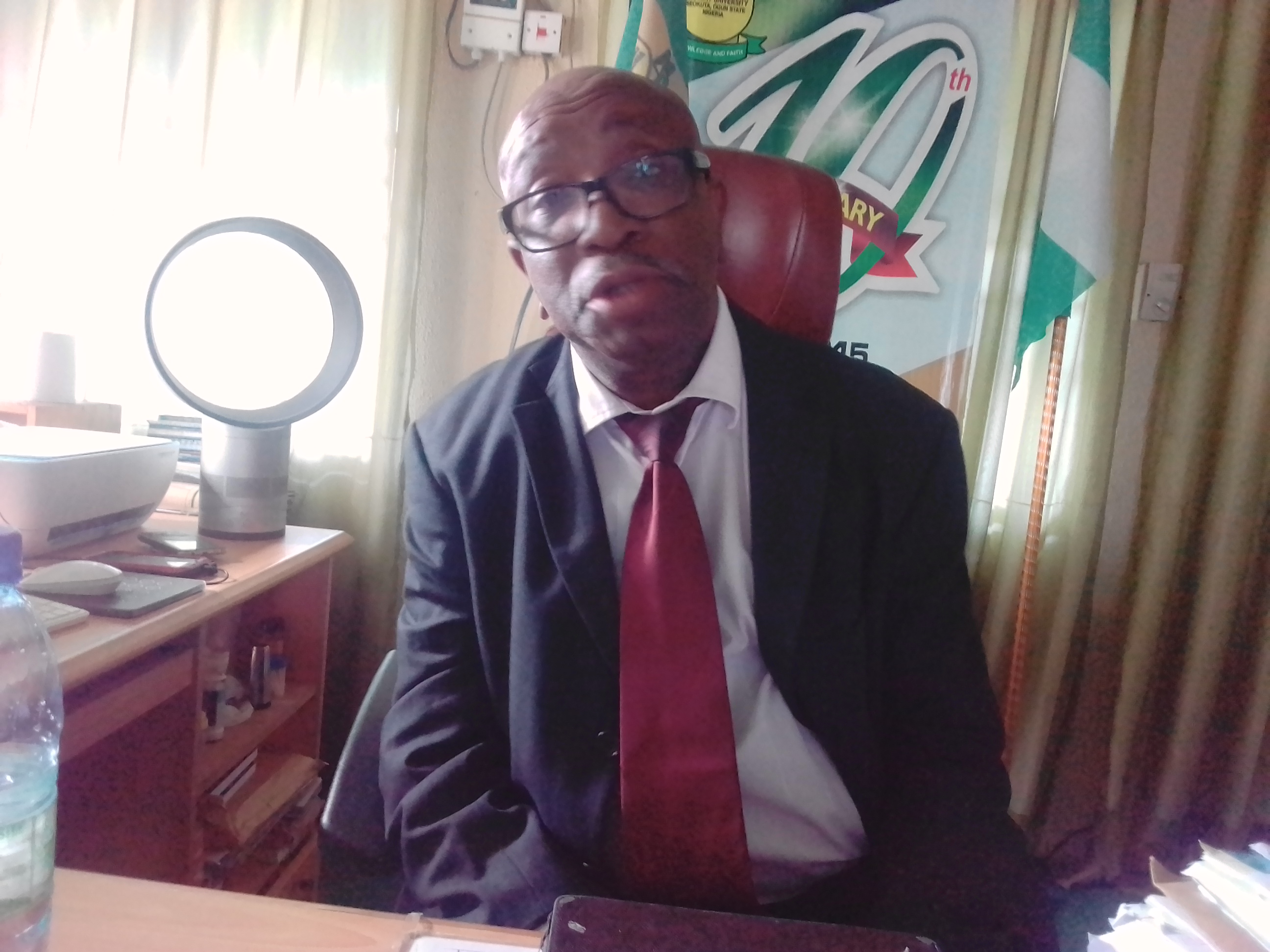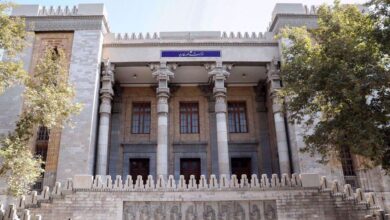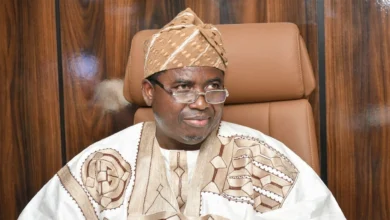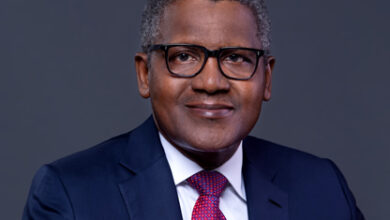Our remarkable progress in 12 years, says Prof. Gbajabiamila, VC Crescent University

*Says private universities should be given enabling environment to grow
*’Nigerian education system not as bad as painted, maintaining existing standard is issue, hence private universities coming to assist’
Professor Ibrahim Gbajabiamila is Vice Chancellor of Nigeria’s singularly acclaimed “citadel for academic and moral excellence”, Crescent University Abeokuta (CUAB), Ogun State, South West, Nigeria. The smooth speaking university leader, Gbajabiamila speaks, in this interview with The DEFENDER, on several issues bothering on education management and how the government should encourage private intervention in education sector to grow. He more extensively speaks on the achievements of his university as well as the place of its proprietor, Judge Bola Ajibola’s personal discipline in the academic and moral excellence that has today become the fruit of education plus that the school offers. Excerpts:
“After all, Harvard and various other international private universities today were not only assisted by governments of their countries but were also assisted by those entrepreneurs because those people who started those private universities never received their return in their lifetime. But they wanted to put their resources for the future generation and so, we, particularly government, have to commend those who choose to do that, like you right said, by providing an enabling environment because, after all, it is enabling environment for Nigerian children not anybody else.”
At the point where Crescent University Abeokuta is today, 12 years after establishment, what is it that we can say is the new thing the management is putting on the table for the market?
Quite a lot! The University itself is waxing stronger after 12 years. We have five colleges. We have recently undergone accreditations of NUC (National Universities Commission) and Council for Legal Education, for Law. The Law programme is an important flagship because of His Excellency Prince Bola Ajibola and it is known as Bola Ajibola College of Law. We are having our first set of graduates after five years this year and they will proceed to the Nigerian Law School.
The accreditation has been done, we are awaiting the final result and we are confident of success. The building and the facilities had been commended by both the Council for Legal Education and the NUC. The Council for Legal Education is very important. It is the regulatory body for lawyers. And if you are unable to get into the Law School, you cannot practice as a lawyer in the Nigerian system.
So, to have College of Law producing students, graduating them and they are proceeding to the Nigerian Law School, is a great achievement of our young university. That I think is one of our issues on the ground at the moment.
The university, itself, through other programmes: architecture, mass communication, chemistry and so on, has made great strides. I think the issue for most parents now is to have quality education and, more importantly, academic and moral excellence, which is the watchword of the university that not are you sending your child here but you will have great emphasis on moral education. In fact it is the very reason for the setting up this university that it is not just academic excellence but we produce all-rounder as somebody you can trust in your business. And that issue of trust is the education plus that we offer.
So, the answer to your question is that Crescent University is about academic and moral excellence.
Are you in essence also saying that the Bola Ajibola’s interventionist mission that Crescent University was established to engage in, will also help in producing morally sound lawyers that are thrown into the market?
Yes, that is what we are saying. We hope our first set of graduands to the Law School this October will be befitting of the proprietor’s (Prince Bola Ajibola’s) name in carrying that name unto the Law School and I think it is part of the education plus that we provide. And we are confident that they will be a credit to this university. And I think the real plus is the moral standing. I think every university that is licensed for Law will produce Law graduates. We would like to say our own law graduates will have that deep moral plus to their education and also to their practice. We are confident that they will carry out their tasks both at the Law School and in their future career.
When you are talking about investment for the future, you send your child to the university but you also want to ensure that they have that moral standing and that they are credit to the family and also to their nation. That, I think, is important that when they are in high positions, we expect that, that moral guidance will always be an important factor in their daily decision making.
“So, it is the entrepreneurs of private universities that have made an impact to try and assist in the development of the nation. So we have to see them as actually philanthropists in way of assisting in crisis. That is the way it is. But if you now punish them through taxes, through all other means to drive them out of the sector, so be it. But in this same Ghana we are talking about, you are allowed to start your private university and you will not pay tax until you start to make profit, which could mean that you could actually have free land to start your university and you don’t have to pay tax. This is just a stone throw from here. And you want to wonder why they are doing that and they are also spending 25 percent of their GDP on education.”
What is it that you could say are the challenges talking about development of university education in Nigeria, using the private university as a case study?
I think the challenges that every private university faces in this system is the inability to access any of the funds that are available because, the fund to run a private university is capital intensive. Nobody will expect to make profit running private university in his lifetime because the university cycle turns around about 50 years before anybody can start talking about making profit.
But in other countries where private universities are actually contributing to national development, there is some sort of subsidy, assistance with library resources and other resources that will ensure that they are at par with any international standard. And I think the TETFUND (Tertiary Education Trust Fund) is an example of that in Nigeria.
That fund was paid by the private sector including the universities but private universities do not have access to the funds. These graduates of private universities are being produced for the Nigerian market, don’t forget. So, that is a discriminatory practice. The funds would have allowed the universities in the private sector to grow more than we are growing at the moment.
We still must not forget the fact that 1.5 million children sit every year for JAMB examination but the total carrying capacity of the Nigerian system with federal, state, private is only about 400,000. So, you are talking of the shortfall of over a million places. So, you have to ask yourself, where would the children have been had there been no private universities? There are 65 licensed private universities in Nigeria. They are still single biggest body compared to the federal which is only 44 and state which is only 46.
So, the single constituency of private universities is making an impact on the landscape of tertiary education in Nigeria. And if there is no assistance to develop them, I mean the private universities, then there is no real basis for any entrepreneur to want to go into it because they are not likely to make a return in their lifetime. You can only assume they are going into it to help the nation at the time of crisis and it’s still the true important fact we have to bear in mind. One of the reasons the proprietor, Prince Bola Ajibola (SAN), went into education is that 20 percent of the children out of school in the whole world are in Nigeria. Those are 10 million children. That has been the case for a long time and there has been no turn around.
The UNESCO asks governments to spend 25 percent of their GDP on education. Nigeria barely spends eight or nine percent. Ghana that spends a considerable amount has made considerable strides in education in both the WAEC results and other professional examinations.
So, to your question of what private university can do, universities are essentially means of generating trained manpower for the economy. In early 21st century economy you need experts to be very experienced in disciplines and these are experts such as doctors, engineers, lawyers, journalists, in all areas of endeavour. It is the university’s responsibility to generate those experts.
But if you are not funding the education or you are no more or less concerned, then, you are really punishing the unborn generation because, after all, the generation that produced the likes of Prince Bola Ajibola and other people was funded on public scholarships, pre-independence, during and post-independence by the Obafemi Awolowo initiative. So, the children that you do not fund their education will now find themselves in a situation that those opportunities of scholarship in the Western Region are no longer there.
We would have a lot of talented people of over a hundred million in our population. But unfortunately, the majority of them are not getting access to even the very basics not to remember that even the 10 million that are out of school are not even getting a chance at primary school. So, much talent is hidden there that might otherwise be liberated in those areas and then, as I said, at the tertiary level over 1.5 million would sit for JAMB and only 400,000 were accommodated.
So, they are forced to go to substandard institutions in neighbouring countries, areas where they (institutions or their courses) are not even licensed, where there is no regulation, where the quality is very poor. It is because the nation has failed in providing them with the tertiary education here.
Therefore, I am saying that education is needed for national development and so, it is not an education for personal gain. You need engineers, doctors, lawyers, accountants, journalists to run a modern economy. So, any country that is not investing in education, it means you are not investing in the future of your children.
But from what we see, Nigerian universities even public are not as they are being painted. Where is the disconnect?
Yes, you probably have heard about this Nigerian doctor in America that carried a unique surgical operation of carrying a baby while still in the womb and he was hosted by the Acting President Yemi Osinbajo few days ago. He said all his education was from Nigeria. He went to University of Ife now Obafemi Awolowo University, Ile-Ife. He said all his trainings were in Nigeria but that got in America to work with a team, with all the facilities and carry out pioneering operation. If he had been that supported or he had had such facilities and team opportunity in Nigeria, he would have been a super person. There are more neurosurgeon doctors in America than the whole of Nigeria.
So Nigerian education system, as you said, is not as bad as is being painted. All you need do is about maintaining standard as it was when Nigeria was safe haven for other African countries in terms of knowledge acquisition and all that. That is while you see that Nigerians who do well abroad had their education here in Nigeria. The education system is not bad but standard should be maintained and, at least now using the example of Olayinka Olutoye as a case study, experts should be exposed to such team work opportunities and facilities made available for them to work. You will find out therefore that Nigeria remains the giant in terms of knowledge giving and all that. Here I think the private universities have tried their best in ensuring that they assist so that with what the federal universities are able to do, we try to find out what the standards are, maintain and improve on them.
“So, there is a good reason while different local communities want universities and Ogun State is quite unique in having 15. But it does benefit the local economy; there is a critical plus and the knowledge economy is a very powerful one because most of the people when they are educated remain in the state. As the industrialization grows the jobs become available.”
In essence you are saying that rather than seeing private universities as running their own businesses, government should look at them as voluntary interventions by private investors which need to be encouraged for them to be able to up the standard that is expected to keep Nigerian tertiary education seekers inward and is required to meet the industrial needs in the Nigerian labour market. Am I right to put it that way?
Precisely I think you have put it very nicely because, unlike other trading or private enterprises where most people go into trade to make money, this is a trade where you will not make money in your life time. So, who is going to be interested…?
Even those that go into trade to make money, you still see government creating enabling environment making foreign exchange available but having to leave out the private universities. How do you feel as a partaker in the system seeing that happening?
Exactly! You have to look at it as development of our children and development of the capital manpower for the future. If you start to see it otherwise, then, I think you are not getting what other people are doing all over the world.
After all, Harvard and various other international private universities today were not only assisted by government of their countries but were also assisted by those entrepreneurs because those people who started those private universities never received their return in their lifetime. But they wanted to put their resources for the future generation and so, we, particularly government, have to commend those who choose to do that, like you rightly said, by providing an enabling environment because, after all, it is enabling environment for Nigerian children not anybody else.
So, if you build a bridge that the government refused to do in your community or you provide transformer, generator or borehole, you are assisting that community. Of course that is not your job but at least, once you are waiting for government, it is not going to happen. But if you are a philanthropist and you realise that providing this borehole would assist and better people’s lives immediately because the government may not reach there in 15, 20 years time, that way, you have not made any money but at least you have contributed your own quota to the good of humanity.
I think that is the way we should see tertiary education particularly private universities as an investment for our children in the future. Of course you do not have to forget that if you are left with federal, you have 44 federal universities. So, federal plus state another 46 and private 65.
So, it is the entrepreneurs of private universities that have made an impact to try and assist in the development of the nation. So we have to see them as actually philanthropists in way of assisting in crisis. That is the way it is. But if you now punish them through taxes, through all other means to drive them out of the sector, so be it. But in this same Ghana we are talking about, you are allowed to start your private university and you will not pay tax until you start to make profit, which could mean that you could actually have free land to start your university and you don’t have to pay tax. This is just a stone throw from here. And you want to wonder why they are doing that and they are also spending 25 percent of their GDP on education.
I just want to give you one further fact; the amount of money spent by Nigerian parents in Ghana is $1 billion. That is more than the total federal budget for federal universities, which is $750 million. So, we as a nation are spending $750 million to run our 44 federal universities but parents themselves decided to go elsewhere in neighbouring countries and spend as much as $1 billion. That is capital flight because as foreign students, you pay in dollars.
So, you can start to see if that money was retained in our system, we would provide jobs. University in any community provides employment and makes positive impact on local economy.
So, there is a good reason while different local communities want universities and Ogun State is quite unique in having 15. But it does benefit the local economy; there is a critical plus and the knowledge economy is a very powerful one because most of the people when they are educated remain in the state. As the industrialization grows the jobs become available.
But if you take all our money to fund the Ghanaian system as foreign students, as I said $1 billion every year, then you know that we are having a problem with taking that money out of our system and putting it into somebody else system. It is as bad as saying you will go and buy your yam from when people are growing yam in a community here. Whatever the amount you take to buy it in Ghana, it can only benefit the Ghanaian farmers and not the Nigerian farmers.









